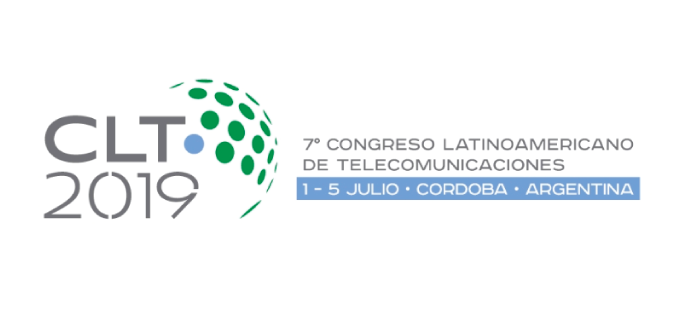LACNIC at the Latin American Telecommunications Congress
30/07/2019

Attended by more than 500 participants, the seventh edition of the Latin American Telecommunications Congress (CLT) was held from 1 to 5 July in the city of Cordoba, Argentina.
The event’s agenda included topics such as the digital economy in Latin America, public policy for innovation, and accessibility.
Ernesto Majó, Deputy Executive Director of LACNIC, moderated the panel titled Challenges of a Secure Internet under a Multiparticipative Approach, organized jointly by ISOC, ICANN and LACNIC, organizations that have always supported the Congress. Panelists Stefano Nicoletti, Director of Policy and IoT at GSMA; Farah Diva Urrutia, Secretary for Multidimensional Security at the OAS; Leandro de la Colina, National Director of Cybersecurity for the Argentine Government Secretariat for Modernization, and Luciano Charlita de Freitas, Regulation Specialist and Adviser to the President of ANATEL, presented different perspectives on how to address the challenges faced by Internet security, such as the emergence of new technologies, IPv4 exhaustion and IPv6 deployment, the massive use of social networks (fake news, criminal activities) and others.
The CLT agenda also included a panel on accessibility with the participation of Carolina Caeiro, Development Project Coordinator at LACNIC. Titled The Lack of Accessibility. Same Old Story?, this panel focused on the alternative model provided by community networks.
Caeiro noted that LACNIC has been an early promoter of community networks through the FRIDA Program, the Regional Fund for Digital Innovation. This program has supported the AlterMundi and Atalaya Sur networks in Argentina, setting up two networks in Bahia and Piauí (Brazil) through Artículo 19, and a wireless network in the municipality of Maní (Colombia) through Colnodo, a civil association. FRIDA also supported the development of LibreRouter, an open source Wi-Fi router designed for community networks, and the structuring of regulatory proposals for rural and community telecommunications networks in Colombia.
The digital divide is a pressing challenge that requires innovative solutions. “More than a third of the Latin American and Caribbean population is not connected to the Internet, mostly in rural or difficult-to-access areas that are not profitable for operators,” Caeiro shared with the audience.
She added that it is logical for underserved communities who want to exercise their right to communicate and access the benefits that come with being connected to devise community setups and self-managed networks.
The questions identified through LACNIC’s FRIDA Program include whether the community networks model is a solution that can be scaled to solve the challenge of connectivity. “One of the main constraints has to do with the introduction of regulations that will allow community networks to stop operating informally,” Caeiro concluded.
Videos of the panels are available here.
(Free access, no subscription required)